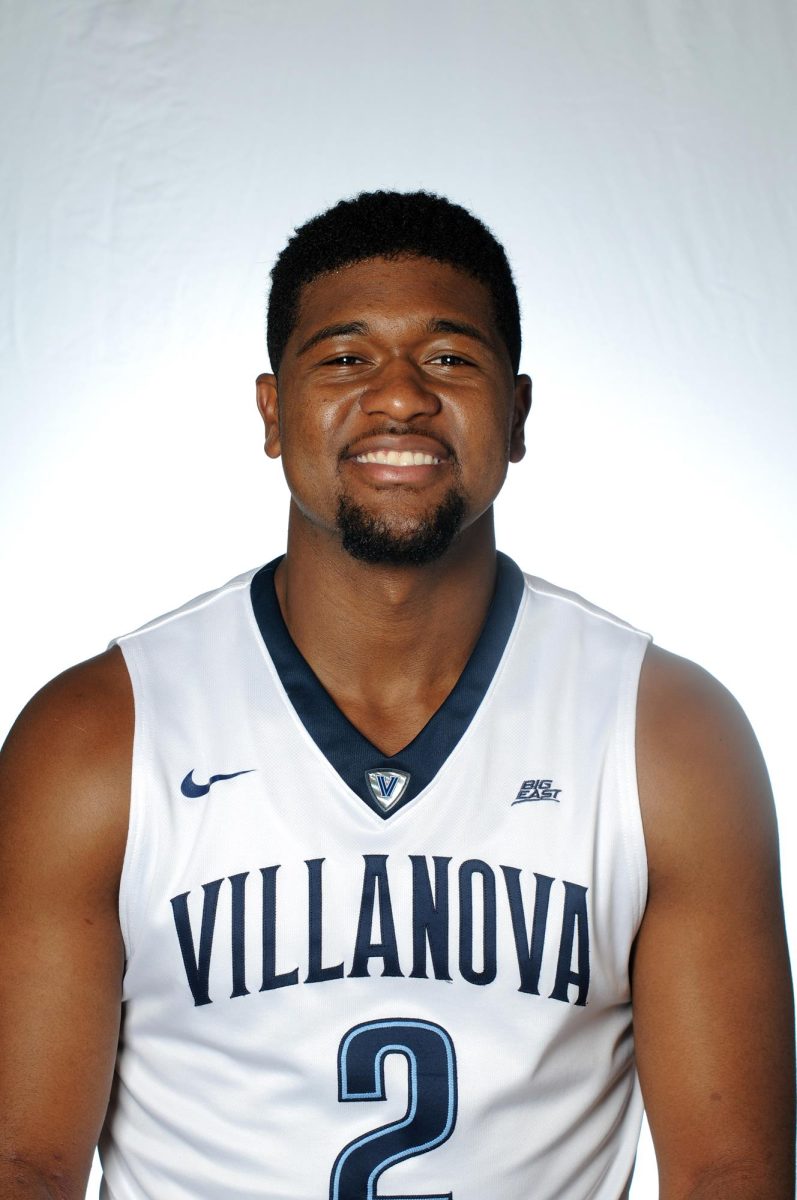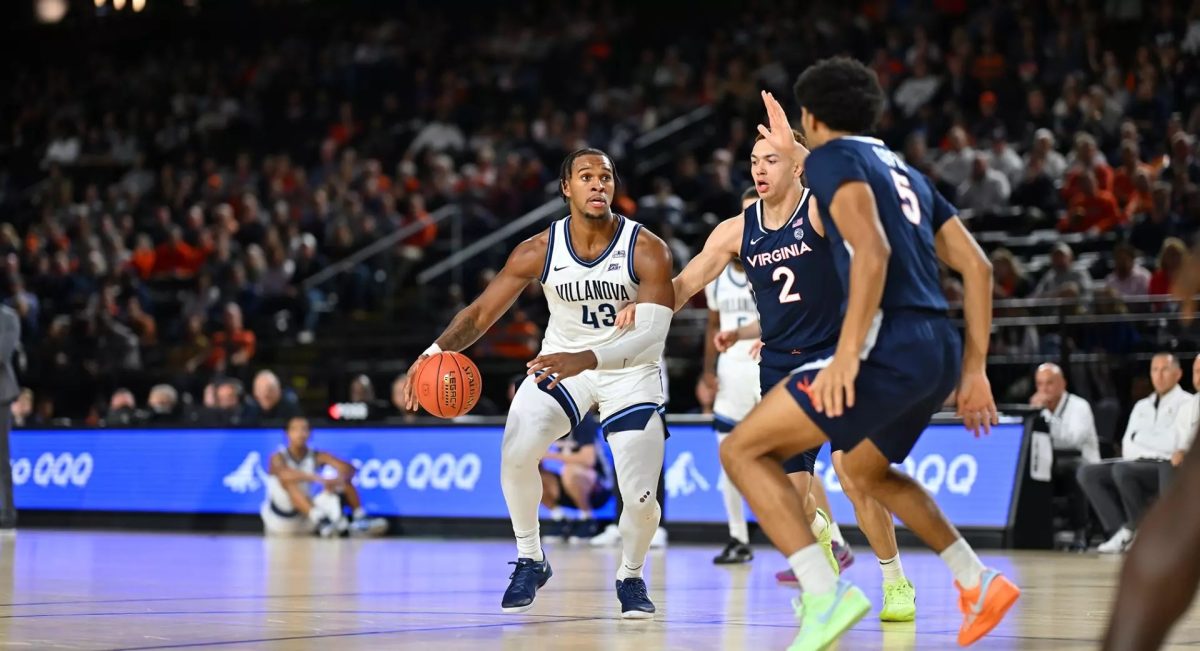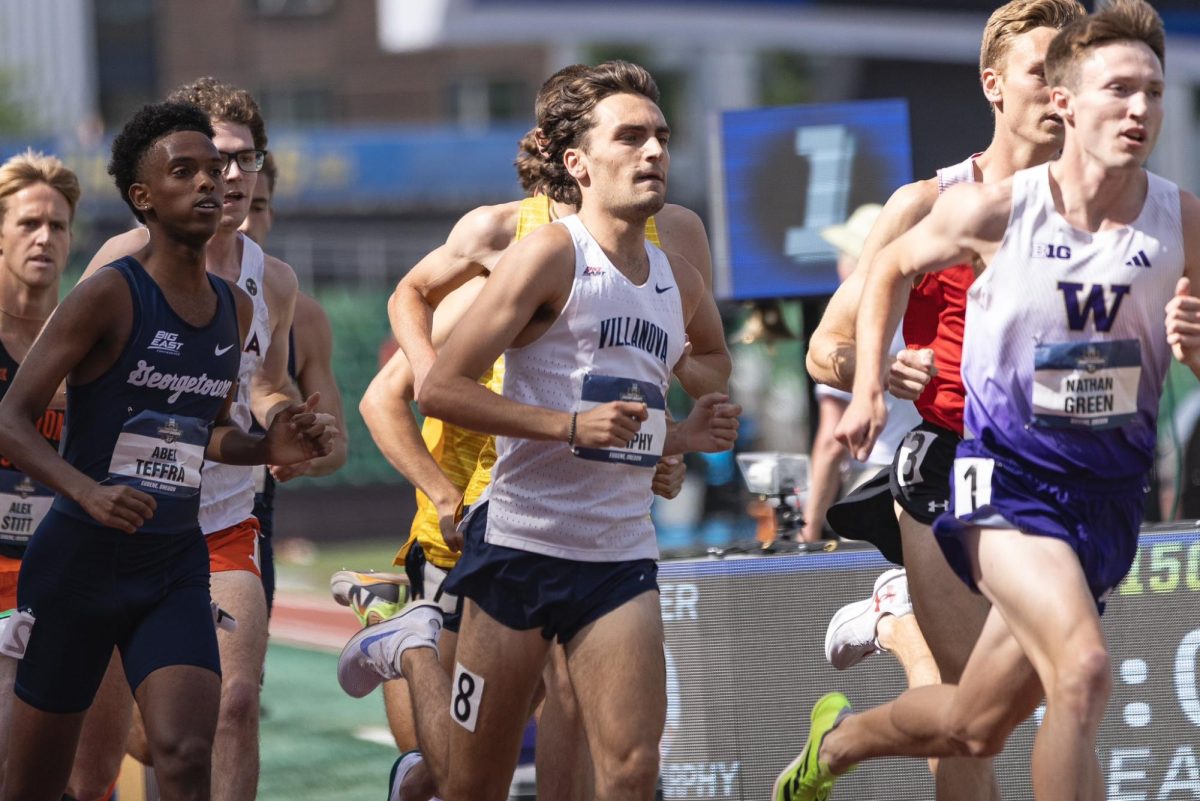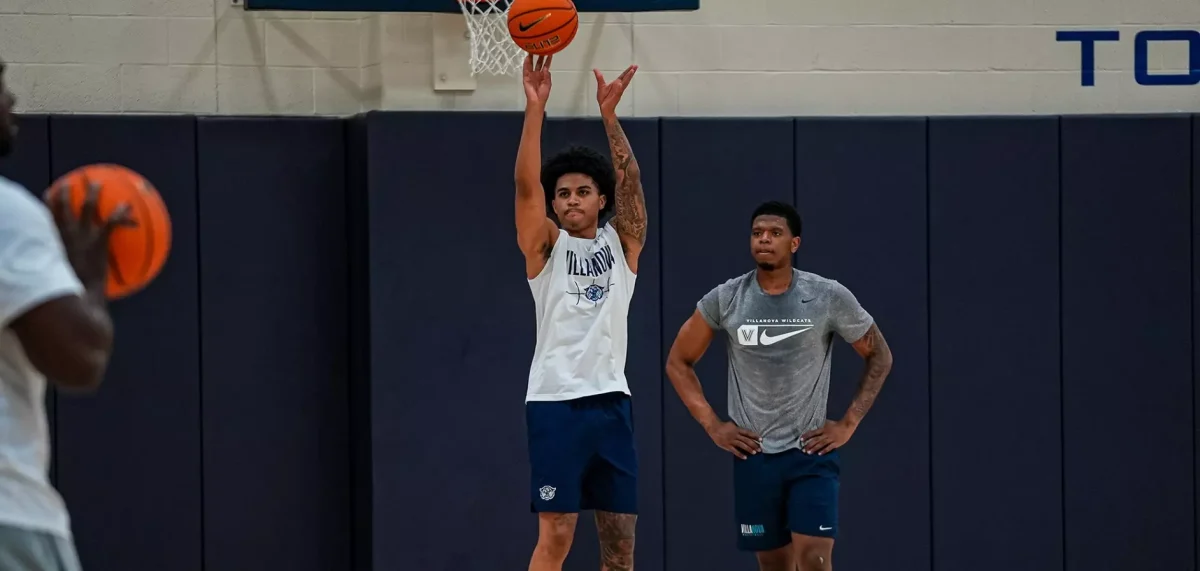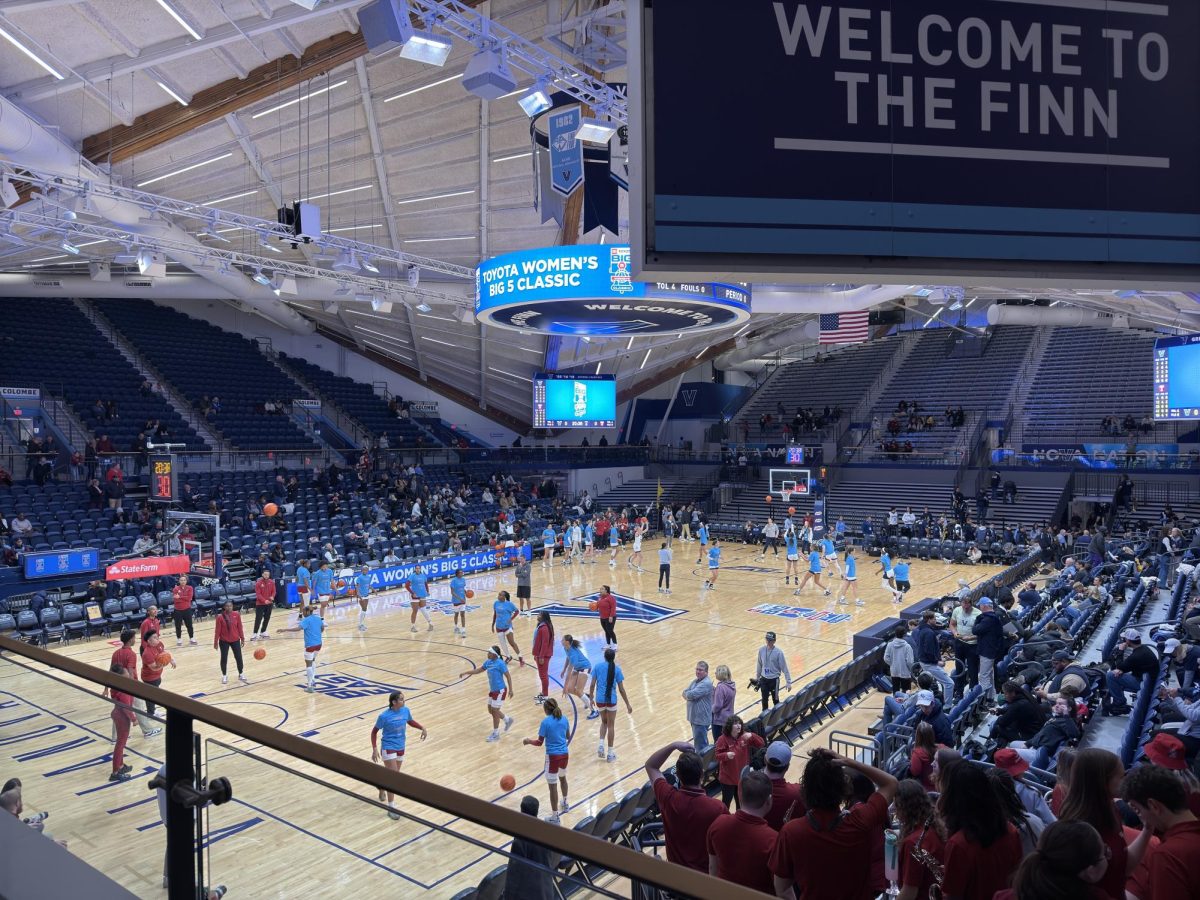Nine years after Villanova’s 2016 national championship, former Wildcat Kris Jenkins is suing the NCAA and six major conferences.
Jenkins’ lawsuit includes the Big East Conference, and claims the plaintiffs withheld specific amounts of athlete pay and limited his ability to make money off his name, image and likeness (NIL) during his time in college.
Jenkins is known for his famous buzzer-beater three-pointer, deemed “The Shot,” which lifted Villanova past North Carolina in 2016 to win the program’s second national championship.
However, at the time, student-athletes were not allowed to be compensated for the use of their NIL, unlike players now. Today, in some cases, a single student-athlete can make more than seven figures in a single season.
Jenkins filed the antitrust lawsuit in the Southern District of New York last week. It names all Power Five conferences, which include the ACC, Big Ten, Big 12, Pac-12 and SEC. Those Power Five conferences are the same named in the House v. NCAA case that was filed on July 26, 2024.
The House v. NCAA case, also known as the NCAA House settlement, is named after Grant House who is the main plaintiff in the case. It is a lawsuit that argues that the NCAA and the schools within it restricted athletes from earning money, including through NIL deals and broadcast revenue.
If approved, the House settlement would pay for an estimated $2.8 billion in damages to past and current student-athletes. The settlement also includes a plan for a way for universities to pay student-athletes directly.
On Monday, April 8, the settlement was heard in a courtroom in Oakland, California. Judge Claudia Wilken, who is presiding over the case, agreed with the contents of the settlement, but did not make a final ruling on Monday.
“I think it’s a good settlement,” Wilken said at the end of the seven-hour hearing. “Don’t quote me, [though].”
Many believe it will be a few weeks until a final verdict is completed by Wilken. As of right now, universities plan to start paying their student-athletes directly in July.
Jenkins opted out of the House settlement and is pursuing his compensation through the lawsuit he filed last week.
The suit filed by Jenkins presents four main arguments. It argues that the NCAA and named conferences “have committed violations of the federal antitrust laws and common law by engaging in an overarching conspiracy to: (a) fix the amount that student-athletes may be paid for the licensing, use, and sale of their names, images, and likenesses at zero; (b) foreclose student-athletes from the market for licensing, use, and sale of their names, images and likenesses entirely; (c) fix the amount that student-athletes may be paid for their athletic services at no more than the value of a scholarship and (d) limit the quantity of athletic scholarships available in the market for student-athletes’ labor services.”
While clips of Jenkins’ buzzer-beater still play on national advertisements and pregame montages, he has not made any money off of them.
The lawsuit also mentions the famous $22.6 million donation from Villanova alumnus William B. Finneran in 2016. It argues that Jenkins’ shot aided the University in receiving that donation, as well as allowing the NCAA to make a profit off his buzzer-beater. As of April 8, the clip of Jenkins hitting the buzzer beater on the NCAA’s YouTube page has 4.5 million views and counting.
Jenkins did not go on to have a successful professional basketball career in the NBA. He made pit stops at teams in small areas in the United States with the Sioux Falls Skyforce and the Yakima SunKings. He eventually spent a season in Germany with the Eisbären Bremerhaven.
His playing career ended with a hip injury in 2020. So, for Jenkins, winning this lawsuit means even more for him and his family.
“I just feel like the opportunity had arose for us to make the right move [with the lawsuit] and seek full compensation for not being able to make money on NIL, which hindered my family’s progress, which hindered my progress financially, which set our family back from the position that we really could have been in from the hard work that I put in,” Jenkins said to ESPN.
If Jenkins is successful in suing the NCAA, he could be compensated for his famous buzzer beater, but more importantly, he could change the restrictions on salary caps currently listed in the House settlement.

